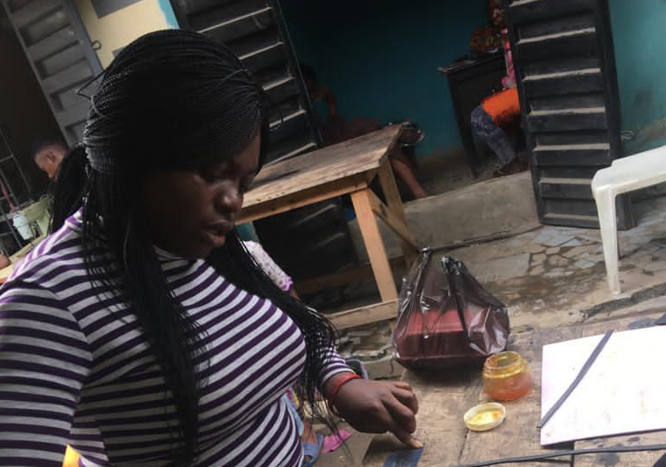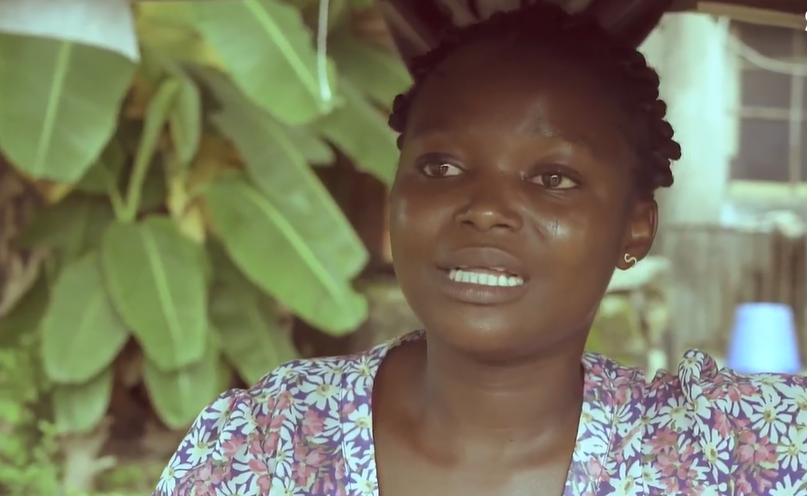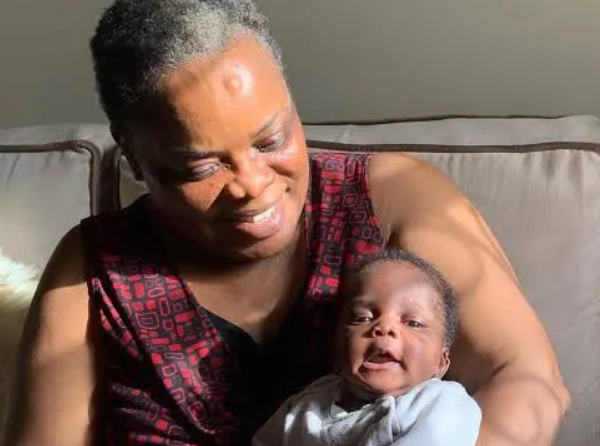BY VICTOR TERHEMBA
“Me na barrack boy, I said it since I came. I know a lot of barrack men wey dey deny. What a shame!” This is an opening line of Vector’s verse on Freestyle remix. As many of us might already know, Vector is a barracks boy; precisely, Obalende police barracks. But why would anyone be ashamed of where they came from? Why would anyone be ashamed that they grew up in the barracks? The reason a lot of people do not like to be associated or known to have grown from the barracks is the stereotype that barracks (whether army or police) children are rascals, miscreants, unruly, and never-do-wells. While this might hold true to an extent for some people, there are several individuals from the barracks who have accomplished great things and are role models to many in society. I would have loved to enumerate some of them but this piece is not about them.
As a barracks boy myself from Mounted Troop Police Barracks, Ikeja, I am particularly proud of the great people that came from the barracks. From movie stars to music stars to professionals to entrepreneurs, etc. Of these great people, however, I want to focus this piece on two ladies; Sarah Johnson(pictured) and Akpa Margaret. The theme for this year’s International Women’s Day is ‘Breaking The Bias’. These young women are not just breaking the bias, they are equally breaking barriers and stereotypes.
Sarah Johnson became an internet and media sensation in 2019 when Sahara Reporters did a feature story on her when they found it unusual that a young girl was riding Keke (tricycle) in the whole of Ikeja. What was striking and unusual about that wasn’t just because she was a woman but a very young one at that. She was just 23 years old at that time.
Advertisement
Sarah’s family is one I know fairly well by virtue of the fact that we lived in the same barracks and her elder brother, Paul, was a close friend. As it is with servicemen and women, the police force decided to transfer Sarah’s father to Niger state; about 660km away from his family. According to Sarah, despite the distance, the father kept sending money back home for the family’s upkeep but suddenly stopped after a while. This brought upon the family many challenges and difficulties that come with the absence of a father and the breadwinner. Then tragedy soon struck in 2014 when Sarah lost her mother to the cold hands of death after a protracted illness. This happened just as Sarah had finished her secondary school education. Despite being the third child, Sarah, jobless and her university education thwarted, emerged the breadwinner of the family, ahead of her elder brothers, catering for the family and her siblings. She was just 19 years old at that time!
Faced with the daunting challenges and increased hardship in the absence of mother and father, Sarah had to dig deep within and harness her entrepreneurial skills if she were to survive in this tough world. She started off by operating a small female hair salon in the barracks but the business didn’t flourish and had to abandon the venture entirely. Then she turned her focus towards selling men’s fashion items on the various social media platforms available to her. This worked well for just a while before she soon got discouraged and abandoned it together. She soon realised that most of her clients cloaked their true intentions under patronage while their real intention was to lure her to bed, willingly or forcibly. A challenge that many women, particularly young girls, have had to face and many could not overcome, such as Sarah. Others more unfortunate survived with painful scared memories and experiences.
Once again, Sarah was left bewildered, hopeless, helpless, tired, frustrated with everything, everyone, and life itself. She was left bereft of any ideas of her next possible actions. But like a warrior, she refused to back down and let her background and situation put her back on the ground. She had siblings depending on her, therefore, she could not afford to be idle and jobless nor give up. Then it struck her that she could do transport businesses and approached someone who helped her to get a tricycle. She didn’t mind her age, she didn’t mind that she looked pretty and could enjoy the “fine girl privileges” like most of her contemporaries were doing at the time, she didn’t mind that she was a woman and no woman has been seen riding a “Keke” in Ikeja before, she didn’t mind that her friends and those who knew her in the barracks would see her riding a Keke. In fact, she plied routes close to the barracks and was close to home.
Advertisement
Sarah rode her tricycle with so much pride and joy that you could see the sense of fulfilment on her face whenever she was at work. She was earning her own money, paying her bills, and attending to her needs and those of her siblings. She could do all these without relying on handouts from anyone or depending on the “generosity” of a man. I remember that for a particular period of time, Sarah was without a place of abode so she had to force sleepovers at friends’ and kept her belongings in different places, including at the house of another friend of mine.
When her story broke on Sahara Reporters and went viral on the internet, not a few good Nigerians demonstrated their goodwill and generosity towards her, donating sums of money and making commitments. From there, Sarah was able to go back to school and further her education. She is currently enrolled in one of the premier universities in the Benin Republic.
Similarly, Akpa Margaret’s story is also inspiring and one of determination, trials, overcoming, and success. Even though I and Margaret didn’t really have any interpersonal relationship back then in the barracks other than the usual customary salutations, I feel very proud and filled with joy when I remember her story and how far she has come.

It is an open secret that the Nigerian police officer is poorly paid and this makes it more difficult for incorruptible or low-ranking police to sustain their families on the meagre salaries that they collect. As the first child, that puts extra pressure and responsibilities on the back of Margaret to supplement the sustenance of the family.
Advertisement
After completing secondary school and the prospects of furthering to the university looking obscure, Margaret looked around her to find what she can be engaged in to kill idleness, develop herself, and make some money for herself; there aren’t many respectable jobs for an SSCE holder in Nigeria. She could see some of her friends, agemates, and schoolmates also milling about without purpose and wasting away. Some of the female folks depended on men and unpronounced prostitution to make a living while the male folks mostly took to Yahoo-Yahoo “hustle”. In her words “growing up in the barracks seeing how young promising youth get to spend time doing nothing, the female sleeps around with men old enough to be their fathers just for money, most of them have no education talk more of acquiring a skill. I was scared didn’t want to tread that part(sic).”
So, in 2015, Margaret started training as a fashion designer in the barracks. After her training as a fashion designer and on the urging of a special friend of hers who convinced her to consider shoemaking, she once again began training as a shoemaker; combining it with her studies in Mass Communications at Wolex Polytechnic, Lagos. Because of her determination and commitment, she gathered her meagre savings and acquired a small machine that she used to practice shoemaking on her own whenever at home. Despite the demotivating challenges of combining studies and work, Margaret managed to remain committed to both while stringing family responsibilities along. A textbook example of “when there is a will, there’s away.”
Although Margaret is not the first female shoemaker, still a lot of people, surprisingly, found it pleasantly unusual to see a female shoemaker who made such quality shoes and this attracted many customers to her, many of who became loyal customers and evangelists. During her mandatory one-year NYSC service at Ikeja Local Government, her dexterity in shoemaking, dedication, hard work, and commitment, didn’t go unnoticed by her immediate boss at her place of assignment, the Local Government decided to reward her with an industrial leather sewing machine. The gift couldn’t have come at a better time as her father was already at the twilight of his service years in the Police force and had already, to a great extent, assumed responsibilities for her younger siblings. The gift greatly ameliorated her working conditions and saved her the money she would have had to cough out from her tight purse to purchase a machine of that quality and capacity.
At the start of her shoemaking business, she would make shoes and sell them online because she could not manage to afford shop rent or even build a small kiosk where she could display her products. Gradually, she saved up money from the little sales she was able to make and got a shop. I stood in awe when I saw her showroom where she displayed her all personally made shoes for men, women, and kids. I still marvel at how she managed to move from selling on social media to having such a big showroom. She told me, she has loyal customers in Europe, Asia, Ghana, America, etc. who buy from her regularly.
Advertisement
There is a popular aphorism that “educate a woman, and you educate a nation”. It is also true that if you empower a woman, you empower a nation. Both statements hold true for Margaret who has trained about 14 other young women and men who are also currently doing well and are employers. She now comfortably caters for her younger siblings and aged father. Margaret’s consistency, persistence, intuitive creativity, and perseverance paid off big time. Unfortunately, Margaret lost her mother in 2021 but she would be proud of what her daughter has achieved and how many people she has been able to inspire.
These two women, like many other women around Nigeria and the world, personify the resilience and the barriers, and the biases that women have to dismantle for them to become respected in society. By doing this, their achievement and actions have inspired many others. I hope that by writing this, a young girl somewhere reads it and is inspired to make a change and smash barriers. Happy International Women’s month.
Advertisement
Victor Terhemba is a civil society advocate and acting executive director, Raising New Voices, Abuja, Nigeria. He can be reached via @Victor_Terhemba.
Advertisement
Views expressed by contributors are strictly personal and not of TheCable.
Add a comment






